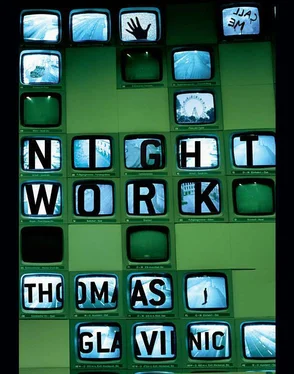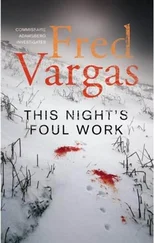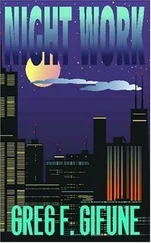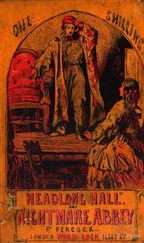Thomas Glavinic - Night Work
Здесь есть возможность читать онлайн «Thomas Glavinic - Night Work» весь текст электронной книги совершенно бесплатно (целиком полную версию без сокращений). В некоторых случаях можно слушать аудио, скачать через торрент в формате fb2 и присутствует краткое содержание. Год выпуска: 2008, Издательство: Canongate Books, Жанр: Современная проза, на английском языке. Описание произведения, (предисловие) а так же отзывы посетителей доступны на портале библиотеки ЛибКат.
- Название:Night Work
- Автор:
- Издательство:Canongate Books
- Жанр:
- Год:2008
- ISBN:нет данных
- Рейтинг книги:5 / 5. Голосов: 2
-
Избранное:Добавить в избранное
- Отзывы:
-
Ваша оценка:
- 100
- 1
- 2
- 3
- 4
- 5
Night Work: краткое содержание, описание и аннотация
Предлагаем к чтению аннотацию, описание, краткое содержание или предисловие (зависит от того, что написал сам автор книги «Night Work»). Если вы не нашли необходимую информацию о книге — напишите в комментариях, мы постараемся отыскать её.
Night Work — читать онлайн бесплатно полную книгу (весь текст) целиком
Ниже представлен текст книги, разбитый по страницам. Система сохранения места последней прочитанной страницы, позволяет с удобством читать онлайн бесплатно книгу «Night Work», без необходимости каждый раз заново искать на чём Вы остановились. Поставьте закладку, и сможете в любой момент перейти на страницу, на которой закончили чтение.
Интервал:
Закладка:
His powers of perception were gradually returning. He knew that he was going north, that night had fallen and he’d been driving for hours. He knew he’d stopped near Northampton and had something to eat. On the other hand, he’d forgotten what he’d eaten and whether he’d had anything to drink, whether he’d spent long there and done anything else. But that was unimportant.
He was driving.
*
He needed a break at some stage. He pulled up in the centre lane and folded the seat back. There was no danger of his going to sleep, he wasn’t sleepy. He needed to relax, that was all.
He folded his hands on his chest and shut his eyes.
They opened again.
He shut them.
They opened again.
He clamped his eyelids together. His eyes were smarting. He could feel and hear the veins throbbing in his temples.
His eyes opened yet again.
He lay there for a while, gazing with owl-like intensity at the roof of the car. Then he returned the seat to its normal position. He mopped his brow and his eyes and drove on.
*
Dawn was just visible on the horizon when he stopped at a filling station near Lancaster. He got out. It was cold. He looked on the back seat for something to put on. No luck, and the boot contained nothing but a grubby sheet of plastic.
He waited, rubbing his arms and shuffling from one foot to the other, while the petrol flowed into the tank. It was a slow business. Something was wrong with the pump. He got back in the car and closed the door, watched the needle of the fuel gauge creep across the dial.
He had a strange sensation.
He felt he’d been here before. He hadn’t, of course, but he couldn’t shake off the impression that he’d seen this little filling station with the flat concrete roof once before — in a different place. It was as if someone had uprooted a place familiar to him and transplanted it here.
He peered out. Nothing. As far as he could see, nothing and no one nearby. No one had been here for the last six weeks.
A trap. This incredibly slow petrol pump: a trap intended for him. He mustn’t get out again. He must get away from here.
He lowered a rear window and swung round. There was no one behind him. He leant out of the window, then recoiled. No hand came reaching into the interior. He put his head out again. Swung round again. Still no one there. No alien creature, no wolf-bear, although he’d seen it. In the fraction of a second he’d spent looking out of the window, something had been sitting behind him. Sitting behind him, staring at his back .
He reached out of the window, released the catch on the nozzle of the petrol pump and let it fall to the ground. He shut the flap without screwing the cap back on, then closed the window, climbed back onto the driver’s seat and drove off.
He looked in the rear-view mirror.
No one.
He switched on the interior light and turned round.
Dirty upholstery. A crumpled cigarette packet. A CD.
He switched off the light. Looked in the rear-view mirror again.
Mopped his brow.
Listened.
*
8 a.m. Smalltown.
The sun was up, but Jonas felt it was a cinematic hoax, as if the sky were a sheet of painted canvas in a film studio. He couldn’t feel the sun’s rays. He couldn’t feel any wind.
He looked at the building, the number on the gate, the railings in front of it. On a hoarding across the road, a young housewife was advertising some product he’d never heard of.
Without reckoning up how many he’d taken, he swallowed another tablet. Quite suddenly he wondered how he’d got here. It wasn’t that he couldn’t remember the journey, but everything had become so unreal. Nothing seemed real, neither the drive here, nor the car, nor his present surroundings. Those tablets. Strong.
He rested his hands on the steering wheel. You. This is you, here and now.
Smalltown. Home to Marie’s sister, who had married an English sexton, and to her mother, who had moved in with her younger daughter after her husband’s death. This was where Marie had spent brief vacations twice a year. Jonas had never accompanied her, pleading pressure of work. The truth was, he’d always disliked getting to know his girlfriends’ parents.
This was the building. The number was right and its appearance matched Marie’s description of it. A four-storeyed, brick-built block of flats on the outskirts of town.
Jonas kicked the driver’s door open but didn’t get out. He eyed the woman on the hoarding. She reminded him of an actress he’d much admired. In the days before he acquired a video recorder he had postponed and cancelled appointments for her sake, filled with an abiding sense of gratitude for the privilege of being her contemporary.
He had often tried to imagine what it would have been like to be born in another age with other contemporaries. In the fifteenth century, or in ad 400, or in 1000 bc. In Africa or Asia. Would he have been the same person?
Chance dictated who you lived with. The waiter who served you in a restaurant, your coal merchant, your schoolteacher, your daughter-in-law. They were your contemporaries. Singers, CEOs, scientists, committee chairmen — they were the people with whom you shared the planet in your day. People living 100 years hence would be different and have other contemporaries. Even if they lived in another part of the world, contemporaries were, ultimately, something positively private. They could just as well have lived 500 years before or after you, but they were doing so now. At the same time as you. That was how Jonas had felt, simply grateful to many of his contemporaries for being alive at the same time as himself, for breathing the same air and seeing the same sunrises and sunsets. He would have liked to tell them so, too.
He had wondered, many a time, whether Marie was his predestined partner in life. Would he have met her in any event? Might they also have met ten years later, and would the outcome have been the same? Might there exist, somewhere in the world, another woman who had been predestined for him? Might he only just have missed her on some occasion? Had they been standing together in a bus? Could they even have exchanged a glance, never to see each other again? Was her name Tanya, did she live with a man named Paul, was she unhappy with him, did she have children by him, was she wondering whether there might have been someone else?
Or was there a woman living in some other age with whom he should be, or should have been, linked? Was she already dead? Had she been a contemporary of Haydn? Of Schönberg? Or was she yet to be born, and had he himself been born too soon? When debating all these possibilities, Jonas had ruled nothing out. He’d really been more interested in the question than in any possible answers.
Drawing a deep breath, he got out and went up to the entrance, where he read the list of names beside the intercom.
T. Gane / L. Sadier
P. Harvey
R. M. Hall
Rosy Labouche
Peter Kaventsmann
F. Ibañez-Talavera
Hunter Stockton
Oscar Kliuna-ai
P. Malachy
That was the name. Malachy. The name of the man Marie’s sister had married. The sexton.
Jonas drew another deep breath, then pushed the door open. It didn’t occur to him to look around for a weapon. Although the lobby and stairs were only dimly lit, he felt unafraid. What drove him was a mixture of longing and despair. Nothing that would have made him turn back, whatever unpleasantness he encountered.
The flat was on the second floor. He tried the handle. The door wasn’t locked.
He turned the light on. The first thing he saw was a pair of shoes — hers. Almost at the same time, he remembered how they had bought them together from a shop in Judengasse. He rubbed his eyes.
Читать дальшеИнтервал:
Закладка:
Похожие книги на «Night Work»
Представляем Вашему вниманию похожие книги на «Night Work» списком для выбора. Мы отобрали схожую по названию и смыслу литературу в надежде предоставить читателям больше вариантов отыскать новые, интересные, ещё непрочитанные произведения.
Обсуждение, отзывы о книге «Night Work» и просто собственные мнения читателей. Оставьте ваши комментарии, напишите, что Вы думаете о произведении, его смысле или главных героях. Укажите что конкретно понравилось, а что нет, и почему Вы так считаете.












